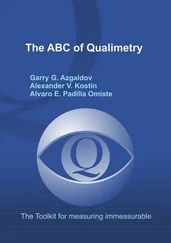“That is very important in a hot country,” observed Mma Makutsi. “Where would we be without fridges?”
“We would still be in Botswana,” said Oteng, looking again at his watch.
You are a very rude man, thought Mma Makutsi.
“Tell me, Rra. What is wrong with the team? Why is it always losing?”
Oteng looked at her as if he had been asked a completely unexpected question. “That is a very strange question,” he said.
“Why is it strange?”
“Because it's so obvious that nobody should have to ask it.”
She waited for him to continue, but he did not, turning instead to catch the attention of the waiter who was hovering near the door. “I need coffee,” he said.
Mma Makutsi was not going to let him derail her, and she repeated her question, adding, “It may be obvious to you, Rra. But it is not obvious to me. The Swoopers used to win-now they lose. How would you explain that?”
“The goalie,” said Oteng. “If the other side scores goals, then it is because the goalie lets them in. It is Big Man's fault.”
Mma Makutsi listened carefully. “He's letting goals in?” she asked. “He does that deliberately?”
Oteng burst out laughing-a superior, contemptuous laugh. “No,” he said. “It's much simpler than that. It's his eyesight.”
The waiter came to the table and Oteng ordered coffee. Almost as an afterthought, he asked Mma Makutsi whether she would like some too. You are very, very rude , she said to herself.
“What is wrong with his eyesight?” she asked.
“He needs glasses,” Oteng said. “You can't have a goalie in glasses. It would look odd.”
Mma Makutsi thought for a moment. “How do you know that he can't see very well? Has he told you?”
Oteng laughed again. “Big Man Tafa doesn't speak to me much. He's jealous of me, of course. I'm a midfield attacker, you know.”
Mma Makutsi nodded. “I have heard that.”
“I saw him trip over something once,” he said. “He didn't see it. I'm sure of it. And I threw him something once in the dressing room-just to test him. I threw him a pencil. I said, Here, Big Man, catch this. And he couldn't see it.”
“So that's the reason why the team isn't doing well?”
Oteng hesitated for a moment. “Maybe.”
Mma Makutsi raised an eyebrow. “There are other reasons, Rra?”
The high voice increased in volume, becoming shriller as it did so. “Molofololo doesn't help. He keeps changing things. He changes tactics. He changes practice times. He changed all our kit when he got some new sponsor. We wanted to talk to him about that, but he won't listen-the problem is that the sponsor pays for us to wear these things. He changed the club's telephone number and then changed it back again. You change things and everybody gets mixed up.”
The coffee arrived, and Oteng became taciturn. Mma Makutsi tried a few more questions but felt that she was getting nowhere. She too became silent. She did not offer to pour a second cup.
“You have been very helpful, Rra,” she said.
“Pleasure,” he said.
IT WAS UNUSUAL for Mma Ramotswe to play any role in the running of the garage. She saw, though, Mr. Polopetsi and the younger apprentice leaning against the side of a car; she saw that Fanwell was drinking a cold drink out of a can and Mr. Polopetsi was fiddling with what looked like a transistor radio-and she decided that Fanwell could be spared.
“You don't look very busy,” she said as she joined them. “Are you fixing radios now, Rra?”
Mr. Polopetsi laughed. “This radio is almost finished,” he said. “My wife said that we should throw it out, but I am trying to save it.”
Mma Ramotswe looked at the apprentice. “And you, Fanwell?”
“I have done all my work, Mma.” He gestured to the car behind him. “This was much easier than we thought. All I had to do was…”
She did not need an explanation. Since things were so slack, she said, Mr. Polopetsi could look after the garage and her office for a few hours, could he not? And Fanwell could come with her. “You can drive my new van, Fanwell,” she said, dangling the keys in front of him. “And you can help me with something.” She did not need to say what it was; a look sufficed.
Fanwell was particularly pleased to drive the van. “This is very good, Mma,” he said as they pulled out into the traffic. “Listen to that engine. It is like a bee. Bzz bzz . Like a very happy bee.”
Mma Ramotswe sighed. “My old van made such interesting noises,” she said. “Sometimes I thought that the engine was talking to me.”
Fanwell glanced at her. “Yes, Mma. I think I understand how you feel.”
She returned his glance. A year ago she would never have imagined that either of the young men-Charlie or Fanwell- would understand such feelings. They liked speed and noise and loud music; they liked talking about girls and bars and football teams. Now it was different, and she realised how easy it is to misjudge the young, to imagine that they share none of the more complex emotions that shape our lives as we grow older. Well, they do, she said to herself; they have those feelings too, and suddenly they become capable of seeing them in others.
“Thank you, Fanwell,” she said. “I miss that van. I miss it here.” She touched her chest, where her heart was.
He said nothing for a moment, but then half turned to face her.
Mma Ramotswe tapped his shoulder before he could say anything. “You must watch the road while you're driving, Rra. Mr. J.L.B. Matekoni says that most accidents happen when people are eating or trying to do something else while they drive.”
“I'm watching. I just wanted you to remember, Mma, what I said yesterday. I said that I couldn't guarantee anything. I might not be able to fix your van.”
She knew that, and reassured him that she did not expect a miracle. But as they approached Harry Moloso's scrapyard, she found her heart beating noticeably faster. It was only two days since the van had been towed away, and she did not imagine that there was much that could have happened to it in that time. Yet it was possible. The van might already have been crushed in one of those machines that transformed a car body into a cube of compressed metal. That would be hard to bear-to see a tiny white cube where once there had been a living van.
“There's Harry Moloso's place,” said Fanwell, pointing at an untidy-looking yard with a corrugated-tin fence. “See it? It's a big place-it stretches all the way back there. Full of old cars, tractors, trucks-everything.”
They stopped at the gate, which was controlled by an elderly security guard in a khaki uniform. He came over and listened while Fanwell explained who they were and the nature of their errand. A barrier was raised-a gum-pole painted in red and white stripes-and they were in the yard.
“It is like the elephants' graveyard,” said Fanwell. “You know that place where elephants go to die. All those white bones. Here it is the skeletons of cars.”
Fanwell was drawing up beside the office, a small breeze-block construction painted in lime green and with a large sign attached. Harry Moloso, Mr. Metal Magnet. Metal Resurrection-Miracles Daily.
“He calls himself Mr. Metal Magnet,” said Fanwell, pointing to the sign. “That is a good name for a scrap merchant.”
Mma Ramotswe smiled weakly. She was gazing around the yard, looking for the tiny white van. At the back of the yard there were several old buses, wheel-less and listing heavily, their windows gaping holes; there were things behind them that she could not see from where she was standing. The tiny white van could easily be concealed there.
They walked up to the half-open door of the office.
“Ko, ko!” Mma Ramotswe called out.
Читать дальше











